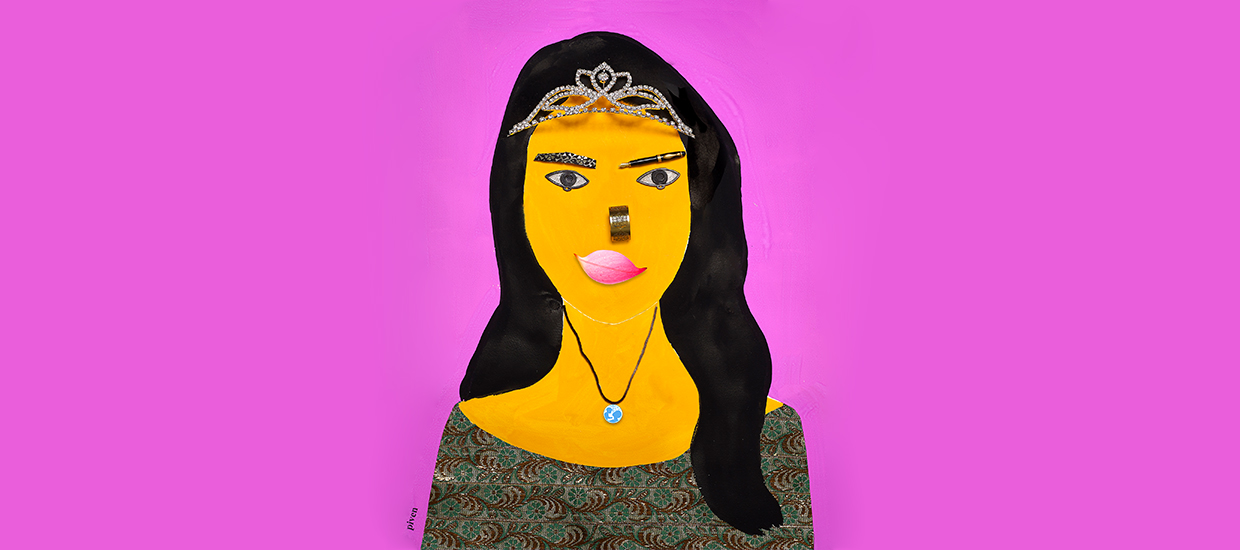Priyanka Chopra Jonas has her brother to thank for her fame and fortune. When she was 17, and he was just 10, he talked their mother into sending in a submission for her to enter the Miss India competition without telling her. She won. A year later, in 2000, she was crowned Miss World.
Seemingly overnight, her whole life changed. Instead of pursuing a career in aeronautical engineering, as she had planned, the daughter of two Indian Army doctors became a Bollywood superstar, often filming five or six movies each year, and winning as many awards. But it wasn’t until 2015, when she landed the role of FBI recruit Alex Parrish on ABC’s Quantico—becoming the first South Asian actor to carry an American network drama—that U.S. audiences fell under her pouty-lipped spell. Nick Jonas, in particular, was bowled over by her, texting Chopra’s costar Graham Rogers simply, “Priyanka. Is. Wow.” In 2018, they were married.
In her new memoir, Unfinished (February 9), Chopra writes breezily and candidly about not only her fairy-tale rise but also her nomadic childhood, career obstacles, and the racial discrimination she has faced over the years. “I’ve spent such a long time in my career not showing the chinks in my armor or not being completely open, because when you’re a public person there’s a part of you that you have to protect to be able to be human, to feel the things that you’re feeling,” she says in a luscious contralto, calling from London, where she’s filming the romantic drama Text for You. Writing this book, she says, “gave me a sense of calm and a sense of confidence to be able to go to those places, because now I was doing it from my voice. My story. My words.”
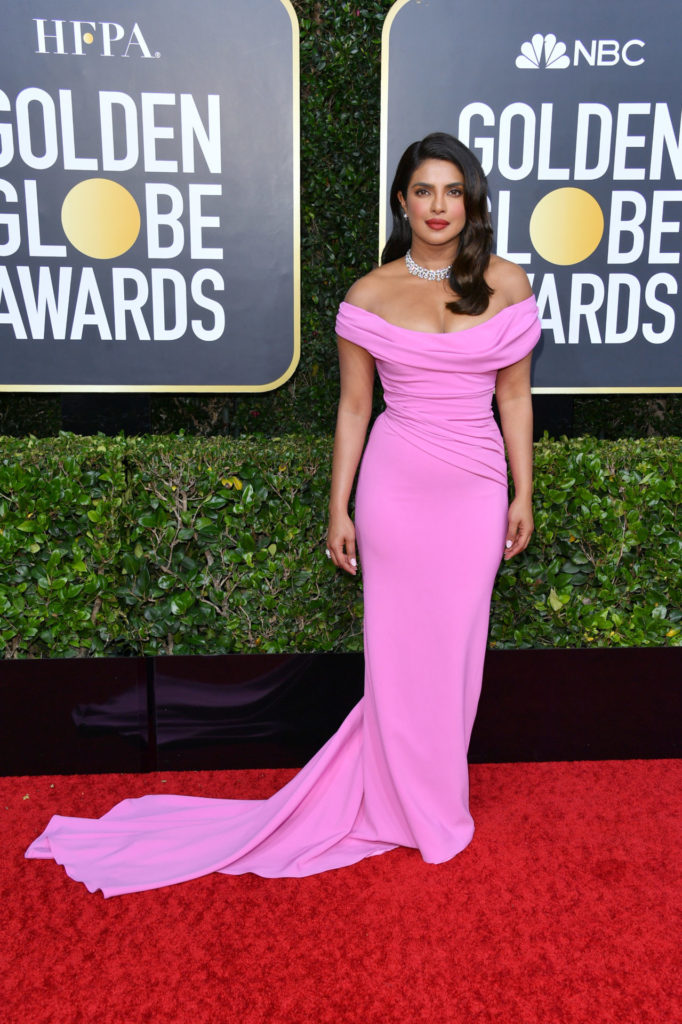
Obviously, when you started writing Unfinished, you didn’t know it would end with you marrying a Jonas Brother.
Not at all! When I started thinking about the book, it didn’t end the way it does right now [laughs]. But I think that my marriage is the beginning of a very different chapter in my individual life. And so that’s why I don’t see it as the ending, which is why my book is “unfinished.”
What was the writing process like?
I knew I wanted to do it for a while. I just didn’t know how I would tell the story. And it took a lot of streamlining my thoughts and breaking up my life into parts: when I was a kid, when I was traveling with my parents, when I started working, and when I moved to America. And I think the most beautiful part of the process was seeing how memories work. There were so many memories I had—especially from my childhood—which were so specific to where I was. Take, for example, when I moved to America as a 12- or 13-year-old. But I asked my mom, “How do you remember this?,” and her perspective was completely different! It was so funny. I spent a lot of time talking about my childhood with my mom, my brother, my aunts, my cousins. So that was a really fun experience. And it was very cathartic for me.
What was the most challenging part of writing the book?
I think being vulnerable, honestly. I spent such a long time with my guard up as a public person. That was the hardest part: to go into how I really felt in between interviews. I could be talking to you and sounding really tough, but what happened after, and how was I really feeling? So I went into those places. I had to push myself and be like, “You know what? Just write it, and then we can edit the stuff that I feel is too personal.” And I ended up keeping a lot of it, which surprised me.
Your parents were doctors in the Indian armed forces, and you moved around a lot as a kid. Your dad spun moving as a blessing, saying, “You can become whoever you want to be. That’s your superpower.” Seems like that attitude set you up for a career in acting.
Oh my gosh, not just the acting. My job requires me to pick up and move. Like, I’m in London now, and we just finished setting up our home in LA, but I’m not going to be there for a year. Nick’s going to be somewhere else. I’ve never had any material attachment because of that reason. You’ve got to be able to pack a bag with the things that you love—or at least six bags, in my case—and be ready for an adventure. That spirit of adventure is something that my dad definitely taught me. There’s sort of a freedom in being able to glide or fly wherever you want to go. I don’t feel tied down.
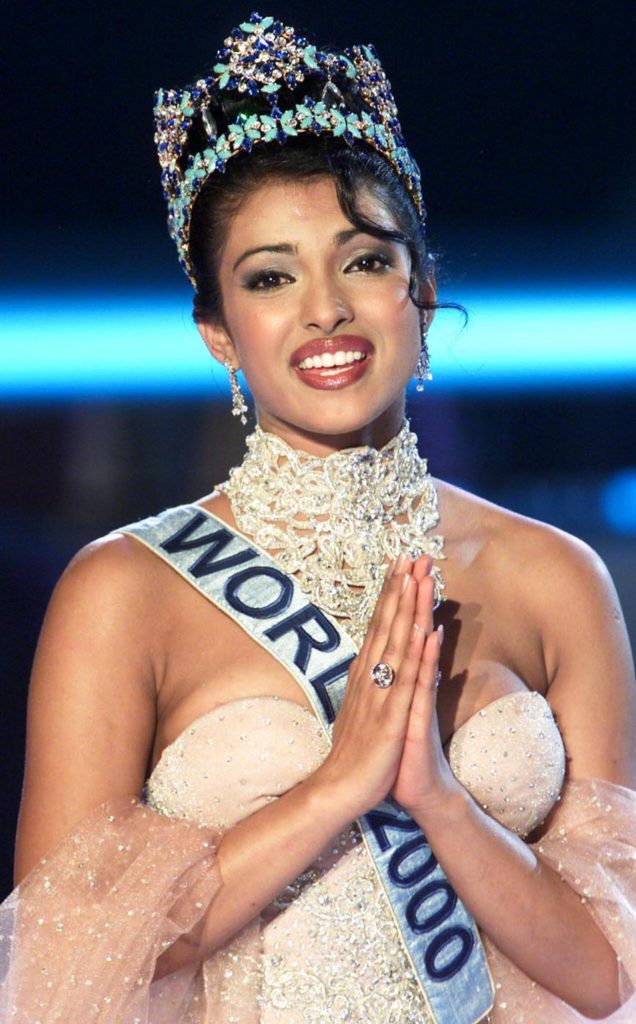
After winning Miss World, you immediately started acting in Indian films, despite not having any experience. Were you gung ho, or was part of you terrified?
Well, it’s a cultural thing, right? That was kind of the norm in India.
It had happened to a lot of Miss Indias in the past: Aishwarya Rai, Sushmita Sen, Juhi Chawlathey all had opportunities in the movies. So I was prepared for it, mentally, as soon as I won. But I was like, “What? I don’t know how to do this! How am I going to learn this? ” And it was one of the first lessons in my life, which I use even now: You don’t have to know everything, but if you keep your eyes and ears open, you learn so quickly. Within a year, I knew exactly what an actor needed to do on a set—how you read lines, how you stand on your mark. In between shots, a lot of actors go to the trailer. Even now, I never leave set to go to the trailer. I always learn on the job, and the way to do it is to just sit in the mix and be quiet and listen.
Until I read your book, I didn’t know how many years you spent trying to make it in America. You were at the top of your game in India and yet had to start from scratch here. Why was it important for you to find success in the U.S., too?
It’s the challenge of it. It was the fact that I was at the top of my game in India, doing really great work, the kind of work that you want to do with amazing filmmakers. I just wanted to evolve. And the more time I spent here, I realized there was such a large diaspora of South Asians in the United States, and there were very few people in pop culture who represented this population. I wanted to be a part of creating people on TV and in movies that looked like me, that I didn’t have when I was in high school [in the U.S.]. I was a huge fan of Sarah Michelle Gellar in Buffy, and I remember wanting to grow up and be as strong and tough and cool as her. But I wonder if it would’ve made a difference to me going to high school and feeling sort of isolated if I had seen people like me in the pop culture that I consumed. And now, as a producer, I want to be the shoulders which create the opportunity that I didn’t have when I first came to Hollywood.
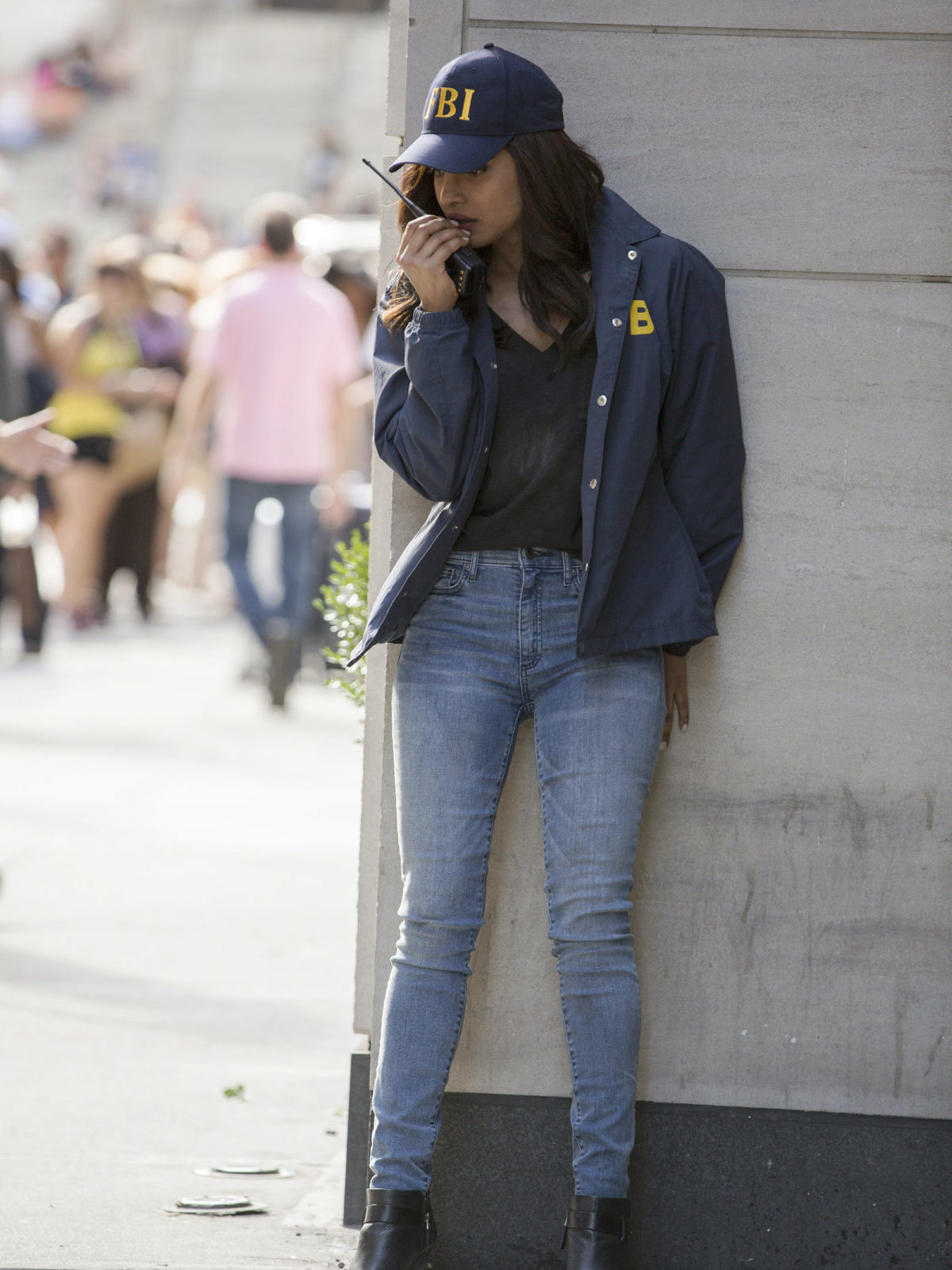
Did you feel as though you were carrying the Indian film industry on your shoulders when you landed the starring role in Quantico, becoming the first South Asian actor to lead an American network drama?
Nobody was adding that pressure onto me but me. But I remember when I signed with CAA, The Hollywood Reporter wrote, “CAA signs its first Bollywood star.” My name was not even in the headline. I was like, “Oh my God, am I representing an entire industry? ” When Quantico was premiering, I felt—and I’m sure every single actor that comes out of another [culture] feels a sense that you’re representing your people—like, “Oh my gosh, I have to be good.” I wanted to be at this precipice of change and involved in normalizing South Asian characters and actors in global entertainment.
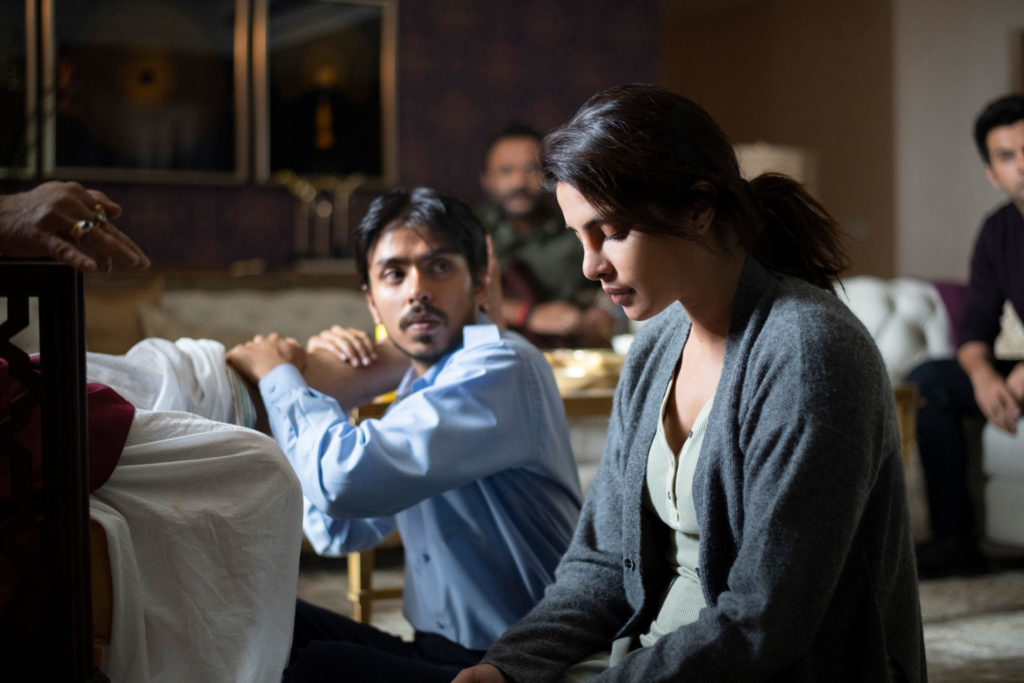
Now you’re producing your own films with your Purple Pebble Pictures, including serving as an executive producer on Netflix’s The White Tiger, which was released in January. Why was it important to you to be part of this film?
I had read the book a decade or so ago, and I remember being very moved by it. I was very uncomfortable about the class divide, the poverty-versus-wealth conversation. When I read in the trade magazines that the movie was being made, I called my reps and was like, “I want to be a part of great cinema that comes out of India.”
Your character, Pinky, is this strong, modern woman whose life couldn’t be more different from that of the main character, Balram.
There is not one India. There are so many faces to India. You can’t generalize with one story, right? And I just love all the characters, especially Balram.
It’s so specific to how he’s written and what happens, but it’s just that the world is so compelling.
The poverty and disparity in The White Tiger made me think of your work as a Global UNICEF Goodwill Ambassador. In your book, you write about a pivotal moment in your childhood when you accompanied your parents on a trip to provide medical care to needy villagers, and you saw how the girls weren’t treated the same as the boys. Did that experience make you want to help make a difference someday?
No, I didn’t know that I could. I was too young. But I’m sure it shifted how I saw the world. I’m not somebody who’s a waster. It’s very important for me to share, and I always did, since I was a kid. I would give my toys away, my clothes, and I’m sure it had to do with being affected by seeing what a difference it makes to be born into a family that appreciates you rather than to be born into one that doesn’t know how to. I think that really shaped me.
You’ve encountered some really harrowing stories in your work with UNICEF. How do you not scream in anger at the injustice? How are you able to be supportive and loving?
Because that’s those kids’ real lives. We can’t come from the comfort of our privileged lives and say, “Oh, your life is so terrible.” No way. You have to empower the kids. That’s their reality. It’s horrible and terrifying for people who see it from the outside—but when they live in that reality, the worst thing you can probably do is come in from a [place of] privilege: “My gosh, I feel so bad.” It’s about coming in and letting them show you their world and becoming a part of their world and finding a way to give them a sense of strength. It can’t be an outside-in perspective.
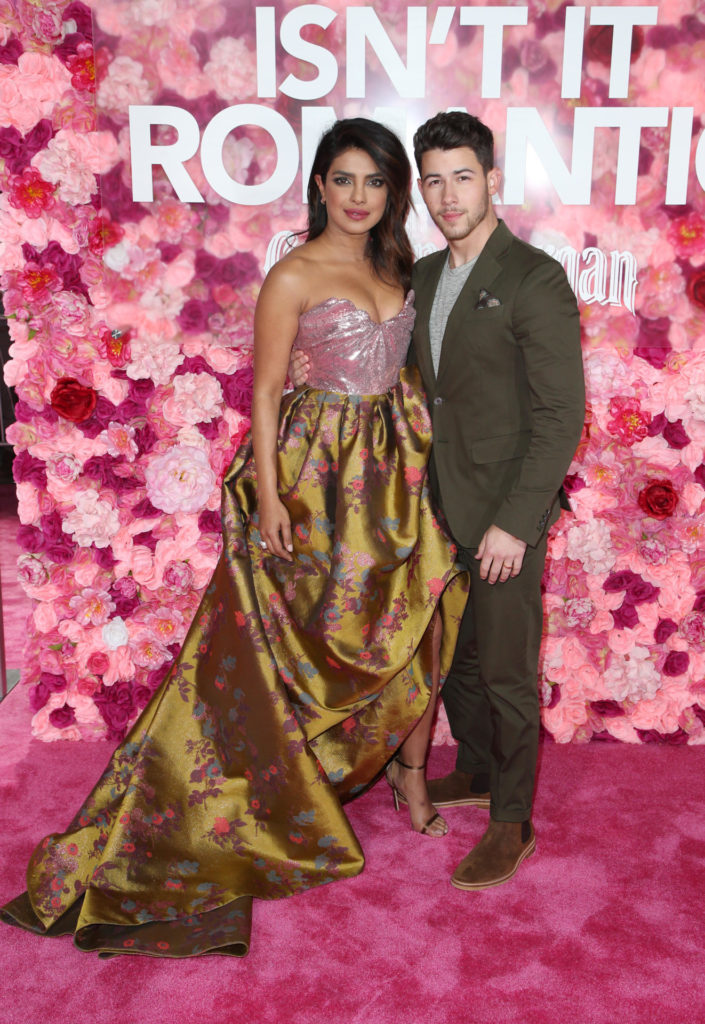
Thinking of future films, I love the way you write about your incredibly chaste courtship with Nick—I feel as if that lends itself to a movie right there.
Yeah, it’s a romantic comedy [laughs].
There are so many serendipitous moments in there that it almost seems too unreal to happen in a movie.
That’s what I felt like! It was those moments that made me believe that this was probably meant to be, because it felt like we just kept coming together, even though we were apart. It was crazy.
Do you guys sing together? I can imagine you releasing a duet.
No way. I’m not singing with Nick.
Come on. I’ve heard your music. You have a good voice.
I can act with him, because I can hold my own there, but the music is something else. I feel there is no comparison. He’s a prodigy.
Just some harmonies. That’s all we need.
Yeah. I could manage that, like in the back, eyes closed.
Last question: In the book you admit that you touched Van Gogh’s The Starry Night at MoMA and climbed over the barricade at the Louvre to take a photo next to the Mona Lisa. What were you thinking?!
[Laughs.] Maybe I’m someone who’s always in denial when I want to break a rule, that I’m just like, “Oh, nothing’s going to happen.” And I just do it. I don’t know why. Even now, I’m just like, “Oh, it’s fine,” but people around me are like, “No, it’s not fine!” But I think it was just that. It was too much sense of adventure maybe? Sometimes I need to rein it in, but what a story to tell, right?
Next Up: The Hemi Q&A: Jeff Bridges
